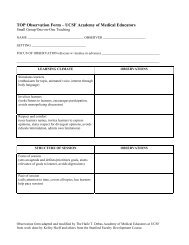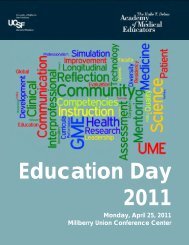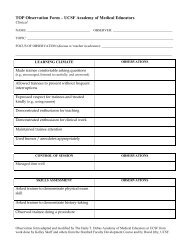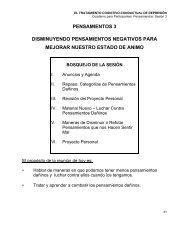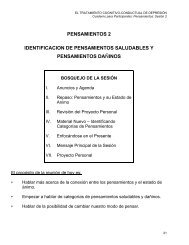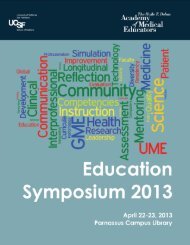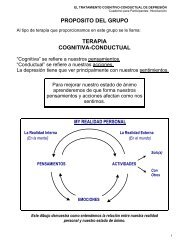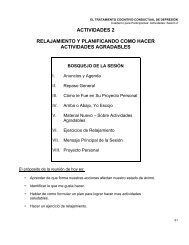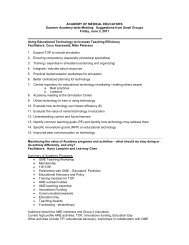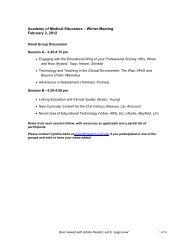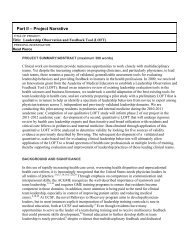The Healthy Management of Reality - Stanford University
The Healthy Management of Reality - Stanford University
The Healthy Management of Reality - Stanford University
You also want an ePaper? Increase the reach of your titles
YUMPU automatically turns print PDFs into web optimized ePapers that Google loves.
Similarly, behaving in an exemplary manner does not guarantee success, oreven respect from others. Nor does acting in reprehensible ways always result inbecoming disliked. In fact, sometimes the latter increases one’s popularity, at leastwith some segments <strong>of</strong> the population.Bad things happen to good people, and good things happen to bad people.How does one think about this fact and yet keep on trying?A probabilistic way <strong>of</strong> looking at life can be very helpful, in that itsimultaneously recognizes the fact that most <strong>of</strong> the events that resulted in ourpersonal reality are out <strong>of</strong> our control and the fact that the choices we make eachday have a real impact on our personal reality. Both <strong>of</strong> these apparentlycontradictory statements are true. Human decisions had little to do with our uniquegenetic code, the time and place in which we were born, and the many events thathave shaped the way we think, talk, and behave. Recognizing this helps to give ussome humility regarding how much <strong>of</strong> what we have is due simply to good fortune.On the other hand, the choices we have made throughout our lives havecontributed to many <strong>of</strong> the specifics <strong>of</strong> our current condition. Acknowledging thiscan result in a sense <strong>of</strong> pride for what we have accomplished, a sense <strong>of</strong>responsibility for what we have done, and a sense <strong>of</strong> hope that we can influencewhat our life will be like from now on.Influence over our lives is not the same as having complete control overthem. Influence means the ability to change probabilities in one direction or theother. We rarely move probabilities all the way to either zero or one hundredpercent. Thus, we cannot be certain that any choice we make will definitely resultin the desired outcome, or prevent an unwelcome fate. But we can be certain thatour thoughts and actions will have influence. And as we learn to choose among theHMOR.July2005.Muñoz.doc 64



